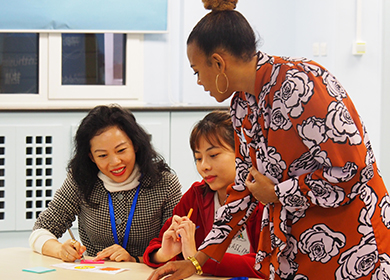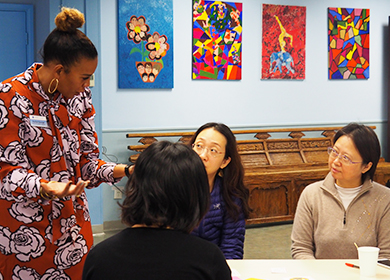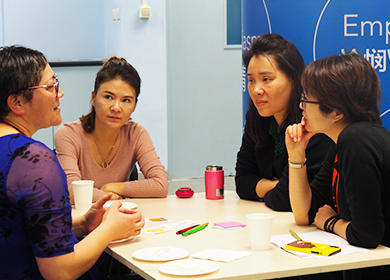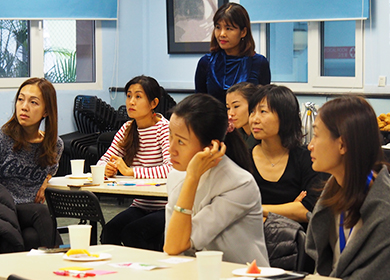Go Back
News
News
Parenting with Emotional Intelligence - Five Tips
News
16 Nov, 2018
10 : 00
On Wednesday, School Counsellor and Head of Student Support at Yew Chung International School of Beijing, Rachel George, led a workshop on “Parenting with Emotional Intelligence”.
Its purpose? To help our parents become fluent in the language of emotions, helping them understand their own feelings before beginning to address those of their children.
Emotions are a source of information that can help us understand ourselves, explained Rachel. During the workshop, parents were shown how to delve deeper into their and their children’s emotions, understanding that “anger” is often not anger at all, but stems from, for example, anxiousness or confusion.
When parents and children can start to understand the causes of their emotions, dialogues open up, enabling us share our real feelings and fears. This is not only beneficial for families, but will also help children to grow into emotionally intelligent, sensitive humans in all walks of life.
On the basis of Wednesday’s workshop, we ask Rachel to share five tips to help parents and families become more emotionally intelligent.
Have a calming strategy
In the moment, when our emotions begin to surge, it is very hard to identify the real cause. For parents and children who find themselves feeling out of control in these moments, I recommend implementing a calming strategy. Different things work for different people, however often taking deep breaths, getting a drink of water, finding a quiet space, or casting your mind to happy thoughts or places can be helpful. When you are feeling calmer, you can start to think about and process your emotions, asking yourself or your child why they reacted in that way, and working out what the underlying causes are.
Take their temperature
Families must try to cultivate an honest and open relationship with emotions. If your child is struggling to manage their emotions, or seems withdrawn, “take their temperature” during the day. By that I mean: ask them how they are feeling. This might be in the car on the way to school, on the way to a party, or an exam. With younger children, showing them emotion cards with a range of emotions can help them identify how they are feeling.
You may find that your child is reluctant to talk at first, especially if they aren’t used to this kind of question. I suggest also sharing your own feelings too. Perhaps you’re feeling tired, worried, down – or, of course, excited or happy! Tell them, explain why, and give them time to respond.
Read stories
Storybooks can be a useful way to discuss a difficult topic with your child. There are many books out there where the characters experience difficult emotions, have lost a friend or family member or find themselves doing something wrong like stealing. If you are finding it hard to talk about a problem with your child, see if you can talk about it in relation to the characters in the stories. Ask how the characters are feeling, why they did that, or what might make them feel better. It is a useful way to talk to your child, without making them feel accused.
Pick one emotion
There is a great spectrum of difficult emotions that our children experience as they are growing up. But we can’t address them all at once.
I suggest picking one emotion that you want to tackle, for example frustration. Firstly, observe your child for a week without any intervention. Note what triggers their frustration.
After a week, start to gently ask your child how they’re feeling, and why that might be. If your child often shows frustration as they’re getting ready for school, ask them questions about school.
Acknowledge your accomplishments
Worrying about our families is exhausting and we can lose sight of what we have achieved. Make sure you take a step back to see how far you’ve come.
If you have managed to understand the cause of one of your emotions, congratulate yourself and recognise it is a big step. If your child has shown great improvements in their behaviour at school, congratulate and reward them too.
Emotional intelligence is not an overnight project, but really a lifetime’s work. Take your time, recognise how far you’ve come, and keep up the good work!
Rachel will be running “Parenting with Emotional Intelligence” again, on November 28. To sign-up, please visit our Yoopay page.













